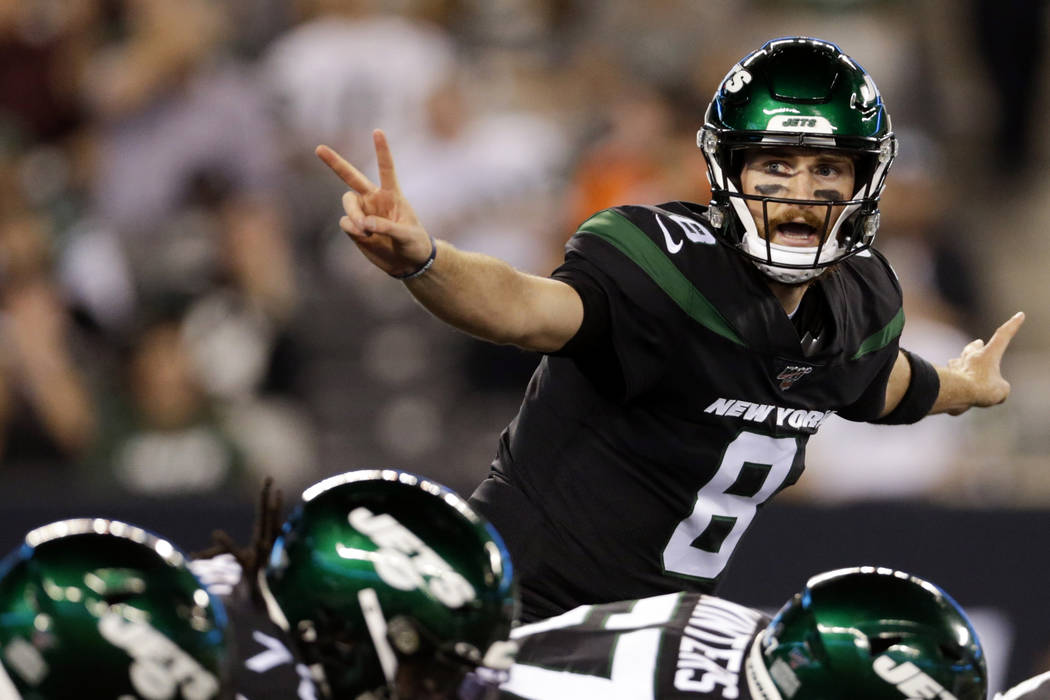Sharp sports bettor David Halpern shares basic fundamentals
David Halpern is a successful sports bettor who was featured on the Showtime docuseries “Action.”
“He’s a well-known, high-end player of ours and a very smart person,” Westgate sportsbook director John Murray said.
A graduate of the prestigious Wharton Business School at the University of Pennsylvania, Halpern is a semi-retired private equity investor who splits his time between La Jolla, California, and Las Vegas.
Well versed in probability and statistics, Halpern estimates that fewer than 1 percent of people make money in the long run betting on sports. But he shared some basic sports betting fundamentals with the Review-Journal that he feels are mandatory for even the most recreational of players to use.
Get multiple apps, best numbers
“When you’re betting $11 to make $10 at the sportsbook, you’re laying 4.76 percent. But you can reduce that by opening up as many accounts as possible and always maximizing your edge by getting the best point spread available,” he said. “If you don’t have the absolute best number, then you’ve got no chance at all.
“If you ever lay a 6 when there’s a 5½ out there, then you have no chance to win in the long run.”
Halpern also recommends finding the lowest money-line splits available.
“For example, if one book has minus 180 and plus 150 and another has minus 175 and plus 155, it’s offering you the identical game for a better price.”
Bettors also should take advantage of reduced juice promotions, from minus 110 to minus 105, on Tuesdays at Caesars Entertainment and on Thursdays at the Westgate.
“I don’t understand why people don’t line up at the Westgate on Thursday and bet football at minus 105,” he said. “I think the majority of people don’t even know about that. You’ve got to maximize those values.”
Use 5-and-5 bankroll rule
“The bankroll is extremely important because it relates to how you put sports betting in perspective with your entire life and your total assets,” Halpern said. “What I would recommend is a 5-and-5 rule. No one, including professionals, should place more than 5 percent of their total assets into sports betting for an entire year and say you can afford to lose that amount and consider it an entertainment expense.
“Then you have to say for any one individual bet I make, 5 percent of that amount is the max that I will put forward for that bet. Because anything can happen in any game and the best bettors in the world will go on a losing streak. One of the biggest mistakes people make is they bet too much of their allocated bankroll on any one event.”
Limit parlays to three teams
“The biggest piece of advice I can ever give is to think about what the house wants you to play and then play the opposite,” he said. “They want you to bet parlays, especially more than three teams, because on straight bets and two-team and three-team parlays, the house has no additional advantage. A three-teamer pays 6-1, which is almost identical to rolling over an 11-10 bet three times.
“But anyone playing preset parlays of four teams or more, you’re just giving up the farm and you have absolutely no chance.”
Limit teasers to two NFL teams
“NFL teasers are the most frightening bet for sportsbooks. Over the past few years, the prices have changed on NFL teasers because the books are afraid of them,” Halpern said. “The reason is because the standard deviations on NFL games are much lower than the standard deviations on college games. In general, the actual scores are much closer to the spread on the NFL.
“You should never do anything other than a two-team teaser. When you do the math, you’ll see once you throw in additional teams, it is completely a disadvantage. And, depending on the number, you should almost always take 7 points.”
Ignore the noise
“When you hear guys giving reasons why they like one team over the other, the first question you should always ask is, ‘Is this information already built into the spread?’” Halpern said. “Ninety-nine percent of the time, their reasons are already factored into the spread.”
What’s the hold percentage?
“I would implore any customer that wants to at least have a fighting chance to ask the book, before they make a bet on any kind of future play, ‘Can you please tell me what is the hold percentage (for the book) on this type of bet?’” he said. “Usually on futures, it’s over 20 percent, and it’s a ripoff and it’s not something I would recommend.”
Become a math whiz
“If you put a guy who’s extremely well versed in probability and statistics in one corner of the room but he knows very little about sports, and you put a guy who’s an absolute sports expert in the other corner of the room that knows very little about probability and statistics, the math guy will crush the sports guy in a long-run contest of sports betting 100 percent of the time,” Halpern said. “Winning at sports betting is much more about probability and statistics and math than it is about sports.
“You can name every player on every team and that doesn’t give you one iota of an advantage when it comes to sports betting.”
More Betting: Follow at reviewjournal.com/betting and @RJ_Sports on Twitter.
Contact reporter Todd Dewey at tdewey@reviewjournal.com. Follow @tdewey33 on Twitter.


















